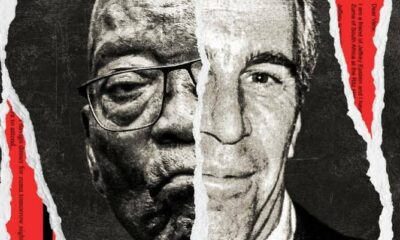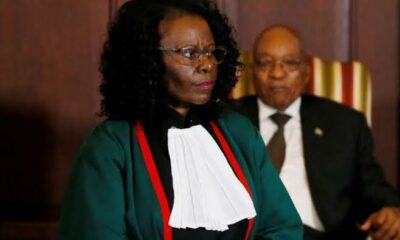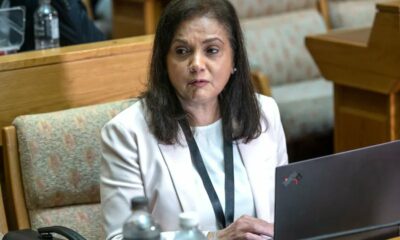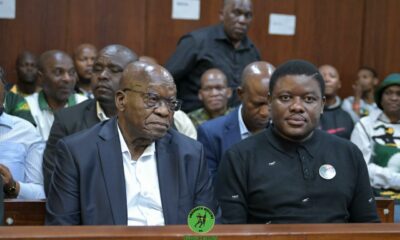News
Four Alleged July Unrest ‘Instigators’ Back in Court as South Africa Revisits Its Darkest Week
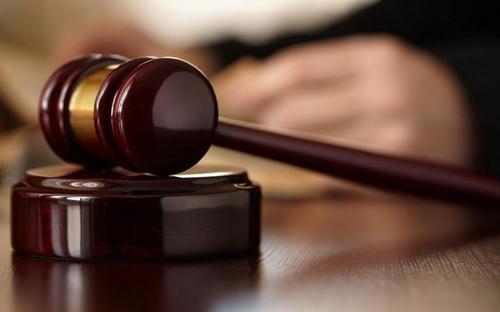
Four Alleged July Unrest ‘Instigators’ Back in Court as South Africa Revisits Its Darkest Week
The wheels of justice are still turning slowly for those accused of sparking one of South Africa’s most painful chapters. More than four years after the July 2021 unrest tore through KwaZulu-Natal and Gauteng leaving over 350 people dead and causing R50 billion in economic damage, four alleged “instigators” returned to court this week.
Their case, which has crawled through the justice system since 2022, has now been postponed to 16 January 2026 for pre-trial proceedings.
Who Are the Accused?
The accused, Bekuyise Thilothemba Cebekulu (58) from KwaZulu-Natal, Bogadi Maphisa (55), Jacquiline Busisiwe Skhosana (48), and Nkateko Jimmy Sibiya (44) from Gauteng, appeared briefly in the Roodepoort Magistrates’ Court on Monday.
According to the National Prosecuting Authority (NPA) spokesperson Phindi Mjonondwane, the four face charges of conspiracy to commit public violence and two counts of incitement to commit public violence.
“They voluntarily surrendered to authorities and were granted bail in June 2025,” Mjonondwane confirmed.
The NPA maintains that it remains “committed to upholding the rule of law” and will pursue all individuals accused of orchestrating or promoting violence that threatens public order.
How WhatsApp Became a Tool for Chaos
Investigators allege that the group used WhatsApp groups between 8 and 15 July 2021 to plan and promote violent actions, from road blockades to arson and the destruction of supply chains.
Authorities claim the accused circulated videos, emojis, voice notes, and messages encouraging looting and the burning of infrastructure in a coordinated push to pressure the state into releasing former president Jacob Zuma from prison.
The riots were triggered in the aftermath of Zuma’s incarceration for contempt of court, but quickly spiralled into something larger, a devastating mix of political anger, economic frustration, and criminal opportunism.
Duduzile Zuma-Sambudla’s Separate Case Adds to Tensions
Meanwhile, Zuma’s daughter, Duduzile Zuma-Sambudla, faces her own trial next week in Durban, also linked to the unrest. She has been charged with incitement to commit terrorism and public violence for social media posts allegedly encouraging rioters.
Her legal team, led by Advocate Dali Mpofu, has vowed to fight the charges, arguing that she merely expressed political opinions and solidarity with her father.
The cases, though separate, have reignited national debate about the political undertones of the July unrest and whether the justice system is equipped to untangle the web of anger, misinformation, and loyalty that fuelled it.
A Country Still Healing from the Chaos
For many South Africans, the images from July 2021 remain etched in memory:
shopping centres gutted, warehouses burning, and long lines at food relief stations as the nation teetered on the brink.
While the South African Human Rights Commission (SAHRC) later concluded that there was no proven causal link between Zuma’s imprisonment and the riots, it acknowledged that his arrest served as a “catalyst for existing social and political tensions.”
Four years later, the court proceedings have done little to ease public frustration. On social media, users expressed mixed emotions, some demanding harsher accountability, others calling for forgiveness and reconciliation.
“People died, livelihoods were destroyed, and we still don’t know who truly pulled the strings,” wrote one user on X (formerly Twitter).
“We can’t move forward without closure,” another added.
As the country braces for more courtroom drama in 2026, the July unrest trials are not just about four accused or a handful of social media posts, they’re about justice, accountability, and the fragile balance of democracy in post-apartheid South Africa.
The postponement may be procedural, but for the families who lost loved ones and the communities still rebuilding, each delay is another reminder of the long shadow cast by those seven days in July.
{Source: The Citizen}
Follow Joburg ETC on Facebook, Twitter , TikTok and Instagram
For more News in Johannesburg, visit joburgetc.com



